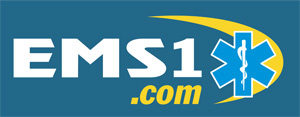Want to start a fight in an EMS social media forum?
Just ask if EMTs diagnose. Invariably, you'll get hordes of people shitting their pants over a simple word, and twisting the English language into something unrecognizable in an effort to avoid calling something what it really is.
General impression.
Field diagnosis.
Presumptive diagnosis.
Field impression.
We have an entire lexicon of weasel words to differentiate what we base treatment plans upon, and when they describe the process, what they describe is essentially… a diagnosis.
It's not a magic word, people, nor is it exclusively owned by physicians. Nor is it something solely based upon laboratory analysis and diagnostic imaging.
di·ag·noseˌdīəgˈnōsverb1.identify the nature of (an illness or other problem) by examination of the symptoms.
And you know what? That sort of thing still happens even when the person making the original diagnosis is a physician, with all the education and technology they have at their command.
It does not make what we do anything less than diagnosing the patient, even when we are proven wrong. Misdiagnoses happen in medicine. Hopefully, the treatment provided for the incorrect diagnosis isn't harmful to the patient, and much of the treatment we provide in EMS is so broad as to be useful for multiple diagnoses, and not overly harmful if we happen to be wrong.
Yet, no one can cite a specific case where the term diagnosis was at issue. Some will cite cases based upon a misdiagnosis that resulted in patient harm, but the fact that they diagnosed was not. You could call what those EMTs did an incorrect field impression, and their legal liability would be the same. I happen to know a number of real EMS lawyers, folks who went to paramedic school and law school, folks who make a living providing legal opinions on healthcare issues, providing expert witness testimony and so on, and invariably they roll their eyes at some guardhouse lawyer's halfassed opinion that use of the word diagnosis will call you to the attention of the Lawsuit Boogeyman.
If an EMT treats a patient with a history of asthma whose chief complaint is difficulty breathing and wheezing, and after obtaining a history and performing a physical exam, determines that the symptoms began immediately following a bee sting, notes the presence of urticaria on the patient's arms and chest, and opts for treatment with an epinephrine auto-injector over assisting the patient with his albuterol inhaler…
… that EMT has diagnosed anaphylaxis, and is treating according to that diagnosis.
The patient's chief complaint was wheezing and difficulty breathing. If he treated purely based upon those symptoms, he'd use the inhaler.
He'd also be an idiot.
Instead, if he chose the epinephrine auto-injector and followed his anaphylaxis protocol because he identified the nature of (an illness or other problem) by examination of the symptoms, he diagnosed anaphylaxis. He had to, to know which treatment protocol was appropriate.
If you're one of those people who insists we don't diagnose, and we provide symptomatic treatment only, there is a word for you: skills monkey. Don't go around bitching because the bunch of bananas they pay you every week doesn't add up to a living wage. You're part of the problem.
In 20 years in EMS, I have yet to encounter a doctor who took exception to my use of the word diagnosis. Not even once. In fact, the people who most often shit their pants over the word are EMTs. But in in the off chance a doctor does tell you, "EMTs don't diagnose," allow me to translate that for you: "I don't trust you to think for yourself."
And if you accept it at face value, and repeat it to other EMTs, what you're really saying is, "I don't think for myself, and I'm not worthy of the doctor's trust."
And you really don't want to be that kind of EMT.
Edited to add: Mere hours after posting this, I came across this post on Kevin, MD:
Finding a diagnosis is not always an easy task.
Sometimes, it is a work in progress.
One of the most salient lessons I learned from these sessions was the importance of clinical discretion and sequential testing. Medical resources are not infinite, nor are they free or even cheap. Every test run or scan ordered is often accompanied by a hefty price tag. As such, we are encouraged to use clinical evidence to guide decision making. When it comes to pinpointing a diagnosis, we are supposed to order tests to specifically confirm a clinical suspicion, based on the patient’s history and exam findings, in addition to our knowledge of statistical probabilities. We also order tests to collect data that would help us rule out an etiology that would alter the patient’s treatment.
(emphasis mine)
So diagnosisis is a work in progress, and often it starts with the paramedic, and is refined, confirmed or disproven with further study in the hospital. And please tell me again that the things that define a diagnosis are lab tests and imaging studies and not history and exam findings. You know, the same history and exam findings that paramedics are capable of obtaining.
For further reading:
 Ambulance Driver Files A Day in the Life | Kelly Grayson
Ambulance Driver Files A Day in the Life | Kelly Grayson

